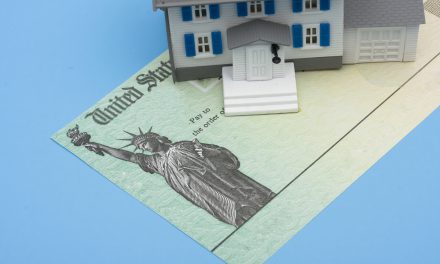Single family residence professionals: what percentage of your deals involve shortsales?
- 50% or more. (54%, 59 Votes)
- 25% (21%, 23 Votes)
- 5% or less. (20%, 22 Votes)
- 15% (5%, 6 Votes)
Total Voters: 110
The number of shortsales nationally exceeded that of trustee’s foreclosure sales, or real estate owned (REO) sales, according to Lender Processing Service, Inc. (LPS). Nationally, shortsales increased from 16% of home purchases in January 2011, to 29% of home purchases in January 2012.
Foreclosure sales nationally decreased 5% over the past year, from 25% of home sales in January 2011, to 20% of home sales in January 2012.
The data division of LPS proffered shortsales as the best option lenders have for negative equity property, reporting the purchase prices for shortsales sales were 6% higher, on average, than for foreclosure sales.
In California, which has more homes facing foreclosure than any other state in the nation, the number of shortsales has been greater than that of foreclosure sales since August 2011. In January 2012, shortsales represented 37% of all home sales in California, while foreclosures represented 26% of all home sales.
first tuesday take
If individual negative equity homeowners are willing and able to opt for a shortsale rather than a foreclosure sale, they’re taking one for the team. Homeowners who opt for shortsales receive no financial benefit from doing so; a shortsale effectively damages the homeowner’s credit as much as a foreclosure sale, with more hassle for the homeowner.
Homeowners first must meet eligibility requirements to qualify for a shortsale (inability to qualify to pay), then find a buyer and endure the process of negotiating with their lender for approval of the price offered by the buyer. The prolonged and exhausting shortsale approval process often lasts several months from start to finish.
Additionally, the extensive time invested in facilitating a shortsale is a drain on everyone involved, from the seller and the seller’s agent to the buyer and his agent. All the while, the payoff for this type of transaction is nonexistent for a homeowner and minimal for an agent, especially the buyer’s agent.
Related articles:
Shortsale or foreclosure? The naked truth for underwater homeowners
FARM Letter: Shortsales: What you need to know
Re: “Short Sales Surpass Foreclosures as Banks Agree to Deals” from Bloomberg















Remember when FHA loans were (gasp!) assumable? How quickly we bounced out of that declining early 90’s market. Investors, and savvy buyers, saved the day.
Short sales are very bad for both the homeowner and especially the agent for tries to get a deal approved by the lender. Months of wasted effort is my experience with a short sale-I only did one.
Then the bank has the nerve to dictate how much the agent;s commission should be.
Home owners of a short sales do get a financial incentive; pay the lender less then what they owe, and not pay taxes or deficiency on the difference due to current laws.( primary residence) Although they do not get any money literally, they nonetheless salvage their credit report. Let’s not forget that a great deal of these home owners have been a victim of some extent, and not by choice. I. E. predatory lending, or the affects of the see – saw economy. Short sales are on the rise because GSE’s have stepped in to repair the damage caused by corporate greed, shady appraisers, and the “band wagon” agents/ loan officers of the past. The only reason I was able to keep my house was because of HAMP. Let us, as real estate proffessionals in all discipline, not forget the “real” trama and emotions that home owners go through when faced with losing a home. Having faced the possiblity of losing my house; I am greatful that there was some program out there, and that it wasn’t left to the bank to slap a notice and eviction. It is tough for some to lose their home, but at least there are programs out there to help them; short sales being one of them. What concerns me is not so much the lenght of time it takes for a short sale, but rather that the landscape of real estate is becoming one of landlords; investors snapping up these home with cash.
The first tuesday article misses a critical point that evidently only the homeowners appreciate. In a foreclosure you loss you home, have a bad credit scoreand must now try to find a place to live with bad credit that limits your rental or purchase options. With a short sale, the homeowner stays in their home with no monthly home payments for up to 24 months. The home owner has a great deal more control over the sale of their home and their own lives. The home owner can now also accumulate some savings since they are being forced into a cash economy.
Get on the ball Tuesday—-your info, some times, is way behind the times. Or just plane WHAK.
You say there is no financial incentive for a homeowner to participate in a short sale. However, Bank of America is now offering from $5,000 to $30,000 for Relocation Assistance, depending on the appraisal value. Other banks have similar programs. A Short Sale has very tangible benefits over a foreclosure.
Mike in San Diego is right on with his comments.
sorry first tuesday…a short DOES NOT equate to a foreclosure. i’ve had two clients short sell without late pays and their credit scores are still quite respectable. the issue remains to be resolved if the short will be viewed by future underwriters as a foreclosure…it is not and there will surley be a congressional act to treat this due to the huge number of shorts we have experienced. the credit reporting acts require that the entries be ACCURATE. i have seen reports with foreclosures cited where there were only shortsales. such a gross error is a lawyers wetdream!
another benefit of the shortsale process is that the seller gets an element of control that is entirely absent from a trustees sale scenario. i’ve been able over the years to serially delay foreclosures for over 30 months in two cases and commonly for three or four extra months where we can show the delays are for reasons beyond our control or due to lender delays.
simply stated the short sale grants a degree of control to a seller that they do not have otherwise.